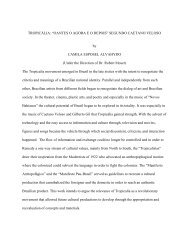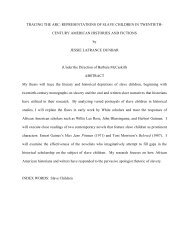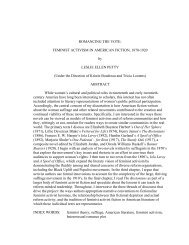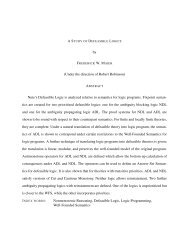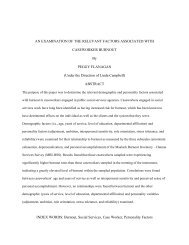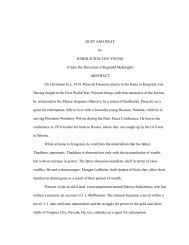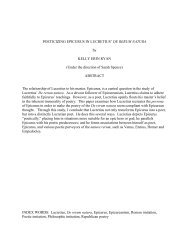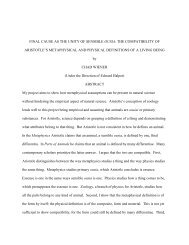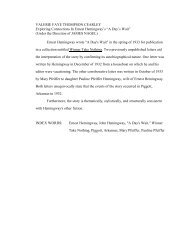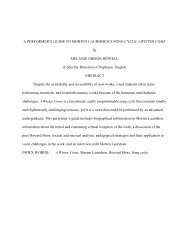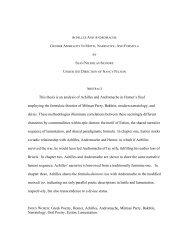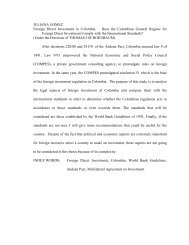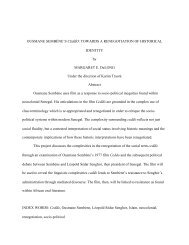exploring a popular culture body modification - Athenaeum Home ...
exploring a popular culture body modification - Athenaeum Home ...
exploring a popular culture body modification - Athenaeum Home ...
Create successful ePaper yourself
Turn your PDF publications into a flip-book with our unique Google optimized e-Paper software.
CHAPTER II<br />
REVIEW OF LITERATURE<br />
The way that humans attend to the <strong>body</strong> on a traditional, experimental, or comparative<br />
basis is direct symbolism of a <strong>culture</strong> at work (Bordo, 2003). Men and women throughout<br />
history have spent time, energy, and resources to manipulate their bodies with the hope of<br />
achieving a desired effect. Humans mentally and physically grow, their surroundings change,<br />
and the experiences they have with their bodies change as well. A person‟s grooming practices<br />
can play two opposing roles; they serve the purpose of portraying a sense-of-self, and yet they<br />
are also used to divide the individuals who follow societal conventions from the ones who do<br />
not, creating a platform of repressed self-expression. In other words, humans can bring<br />
themselves closer to a <strong>culture</strong> through a visual, unified identity but using the same visual effect<br />
can concurrently set themselves apart. Only in the past forty years has literature been devoted to<br />
the discussion of supplementations/<strong>modification</strong>s to the pubic region from a historical<br />
standpoint, recognizing different <strong>culture</strong>s use of it in daily life and art, as well as the modern<br />
trend and its influences.<br />
Historical Evidence<br />
Possibly the most in-depth historical evaluation of pubic hair depilation is found in<br />
Wendy Cooper‟s Hair, Sex, and Symbolism (1971). The author begins with the Egyptian<br />
civilization, stating that both men and women thought of <strong>body</strong> hair as “ugly” and “unhygienic,”<br />
causing their daily grooming to include complete <strong>body</strong> hair removal (Cooper, 1971).<br />
Archeologists have unearthed a variety of Egyptian depilatory devices, which supports the idea<br />
that Egyptians regarded hair as impure and held a strong distaste for it. Historical evidence of<br />
9



